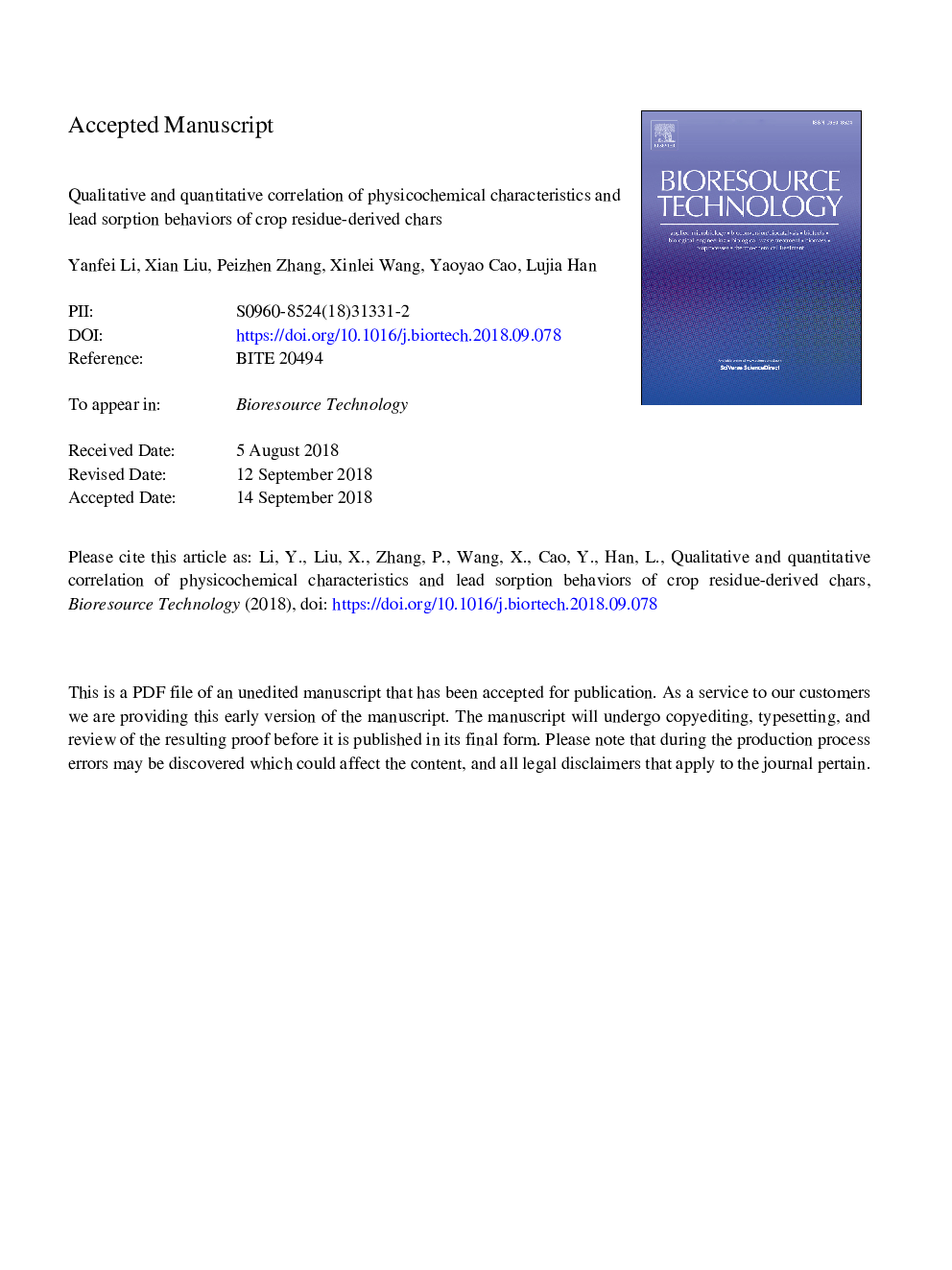| Article ID | Journal | Published Year | Pages | File Type |
|---|---|---|---|---|
| 11029952 | Bioresource Technology | 2018 | 45 Pages |
Abstract
This study investigated the key physicochemical characteristics of char that control its ability to absorb Pb2+. Three type of crop residue-derived chars and their ball milled powder were characterized using multiple approaches. The Pb2+ sorption mechanisms of biochar were caused mainly by coprecipitation reactions, which were governed by ionic minerals on chars instead of mineral crystallization (e.g., SiO2 and Al2O3), while coprecipitation reactions and Ï electronic interaction were the dominant mechanisms of activated carbon. Pearson analysis showed that adsorption quantity (Q) highly correlated with the cation exchange capacity (CEC) (Pâ¯<â¯0.01)/oxygen functional groups (OFGs) (Pâ¯<â¯0.05) and Q closely correlated with coprecipitation amount (Pâ¯<â¯0.01)/complexation amount (Pâ¯<â¯0.01). Linear regression equations of sorption amount and CEC (R2â¯ï¼â¯0.8)/OFGs (R2â¯ï¼â¯0.7) were established. CEC and OFGs of chars are the key factors controlled Pb2+ sorption. These results may promote the development of low-cost, engineered biochar with superior sorption qualities for environmental remediation.
Related Topics
Physical Sciences and Engineering
Chemical Engineering
Process Chemistry and Technology
Authors
Yanfei Li, Xian Liu, Peizhen Zhang, Xinlei Wang, Yaoyao Cao, Lujia Han,
